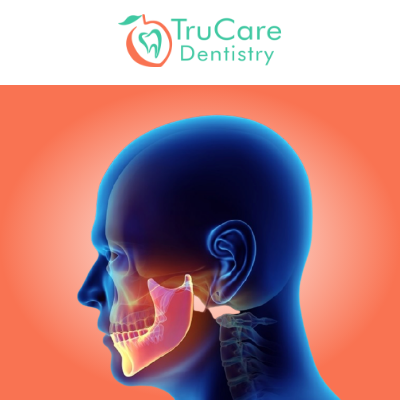Do you know that 1 out of 12 people in the USA is affected by TMJ disorder? TMJ stands for a temporomandibular joint that connects a jaw to the temporal bones of your skull. It is a hinge joint that allows us to move jaws up and down, side to side so that we can talk, chew, and yawn.
The problems associated with the jaw and the supporting facial muscles are termed temporomandibular joint (TMJ) disorders. This blog explains the comprehensive details, including the TMJ disorder treatments; let’s explore it together!
Causes of TMJ Disorder
The definite cause of TMJ disorder is challenging to determine. The pain in the TMJ might occur due to a combination of the factors. Usually, the symptoms arise from difficulties with the muscles or parts of the jaw joint. However, here are is the list of the common causes;
- Injury to the jaw joint and surrounded area.
- Tooth or jaw alignment issues.
- Prolonged grinding or clenching teeth.
- Arthritis in the joint.
- Stress.
- Stress leads to the tightening of facial and jaw muscles or clenches the teeth.
- Genetic factors.
Symptoms of TMJ Disorder
TMJ disorder often causes moderate to severe pain and distress. It can be temporary or last for a more extended time. This dental condition might affect one or both sides of your face.
A person with TMJ will experience symptoms such as;
- Pain or tenderness of the jaw joint area.
- Swelling on the affected side of the face.
- Sharp pain while chewing, speaking, or opening the mouth wide.
- Jaws get locked in the open- or closed-mouth position followed by severe discomfort.
- Clicking, popping, or grating sounds in the jaw joint while opening or closing the mouth.
- Difficulty in chewing.
- Headache or hearing loss.
Diagnosis of TMJ Disorder
TMJ disorder is complex to get the accurate diagnosis process as there are no widely accepted standard tests now available. Plus, the exact causes are not clear. And, sometimes the symptoms arise because of underlying medical conditions like ear infections. Hence, identifying this disorder can be difficult and complex.
Nevertheless, your dentist will note your symptoms, take a detailed medical history, and examine affected areas such as the jaw, neck, head, and face to determine tenderness, popping, clicking, or trouble with movement.
After the oral examination, the doctor might suggest x-rays of jaws, temporomandibular joints, and teeth to find other problems. Like magnetic resonance imaging (MRI) or computer tomography (CT), additional tests might be suggested in some cases. For example, the MRI can determine if the TMJ disc is in the proper position as the jaw moves, while a CT scan explains the bony detail of the joint.
TMJ Disorder Treatments
Most jaw joint and muscle problems are temporary. So, simple treatment can work to relieve discomfort. For example, short-term use of over-the-counter pain medicines or nonsteroidal anti-inflammatory drugs (NSAIDs) can reduce pain and discomfort. Moreover, the dentist might prescribe anti-anxiety medication, antidepressants depending on the cause and symptoms of a TMJ condition.
Botox/steroids injections are also an alternative TMJ disorder treatment typically followed after a clinical examination.
Usage of a stabilization splint or bite guard is recommended in some cases to relieve the pressure of the upper teeth on the affected area.
Dental work in case of missing teeth can correct the bite problem and can be effective.
The other considerations to treat TMJ conditions include;
- Apply moist heat or cold packs to the affected area. This will help in relieving the pain and swelling.
- Eat soft foods to minimize chewing.
- Avoid extreme jaw movements like yawning and chewing to a minimum. Do not yell or sing; that forces one to open your mouth wide.
- Keep your teeth slightly apart to relieve pressure on your jaw.
- Ask your dentist about the techniques to relax and reduce stress.
Additionally, if any other treatment does not work, surgery for TMD is an option. But, the surgical treatment for TMJ disorder is often irreversible and should be avoided wherever possible. All in all, getting the oral examination done is the first thing one needs to do while having issues with TMJ. After that, the dentist can suggest the treatment based on the symptoms and severity of the disorder.
Are you looking for the best treatment for TMJ disorder?
TruCare Dentistry offers treatments for all types of dental issues, including TMJ disorder. Schedule an appointment with the specialist dentist and get relief from the difficulties with the temporomandibular joint.

